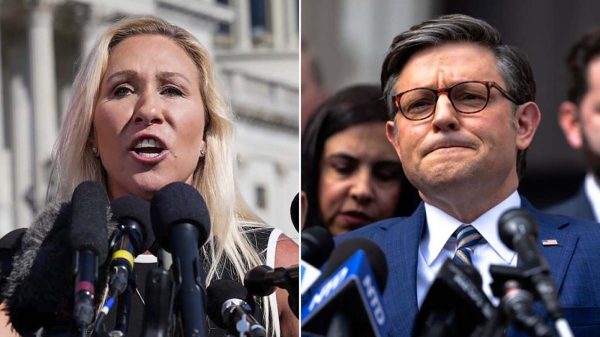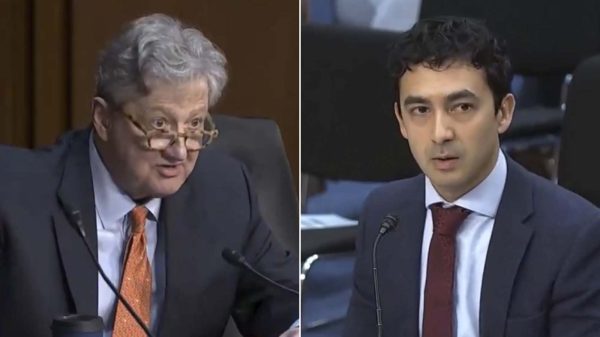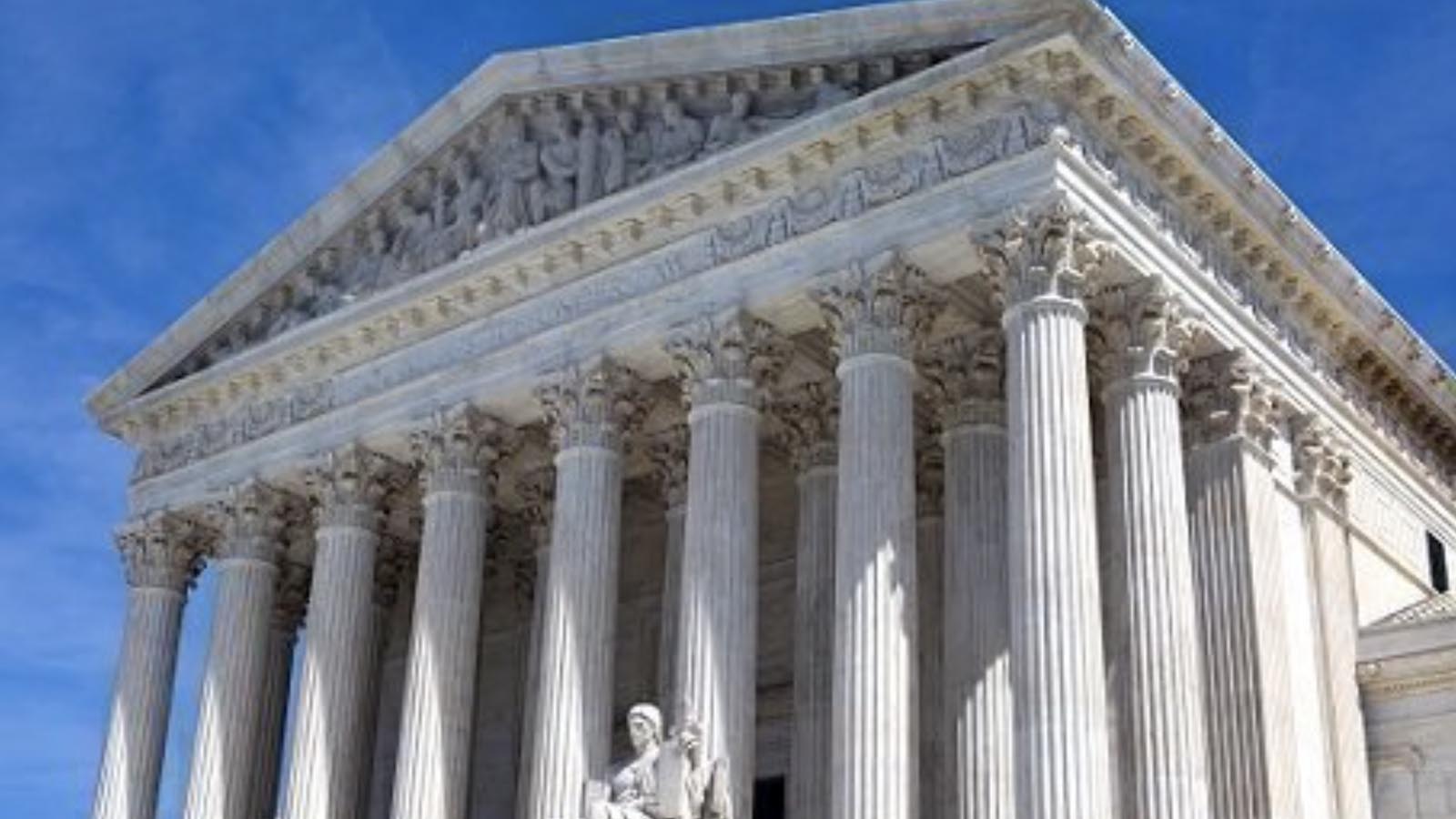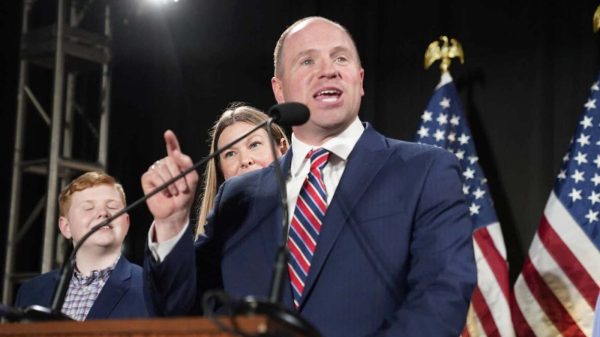On October 2, 2023, the Supreme Court starts a new term as it considers another round of significant cases that could have a long-term impact on the legal landscape.
The latest arguments involve questions related to the First Amendment’s Free Speech Clause, Second Amendment restrictions, and election redistricting. Also at stake is the fate of the Chevron doctrine, a Supreme Court precedent that promotes court deference to actions by the executive branch.
Acheson Hotels v. Laufer (22-429)
Arguments: Oct. 4, 2023
Deborah Laufer, a self-appointed Americans with Disabilities Act “tester,” sued Acheson Hotels for not providing disability accessibility information about a hotel on its website. Acheson claims Laufer lacks standing to file the lawsuit since she never intended to visit the hotel.
Alexander v. South Carolina State Conference of the NAACP (22-807)
Arguments: Oct. 11, 2023
This case involves a challenge to a South Carolina legislature restricting plan introduced after the 2020 census and the intersection of political and racial gerrymandering. A proposed election map moves thousands of Black voters to a different district to gain a political advantage. Lawmakers claim the act was not based on race but was a permissible political gerrymander.
Brown v. United States (22-6389)
Arguments: To Be Scheduled
The Armed Career Criminal Act imposes a maximum 10-year sentence on felons who possess a firearm but a 15-year minimum sentence on felons who have a firearm violation and three “serious drug offense” convictions. Brown claims his prior drug convictions should not count toward a longer sentence due to a conflict between current state and federal drug possession laws.
Harrington v. Purdue Pharma L.P. (23A87)
Arguments: December 2023
The Supreme Court will consider a Justice Department request to block the bankruptcy settlement involving opioid manufacturer Purdue Pharma and its former owners, the Sackler family. The settlement involves a $6 billion payment from the family, with the condition that third-party releases would prevent further victim lawsuits against the Sacklers.
Lindke v. Freed (22-611) and O’Connor-Ratcliff v. Garnier (22-324)
Arguments: Oct. 31, 2023
These cases deal with a similar question: When can public officials block social media users from commenting on their public social media accounts without violating the First Amendment? In Linke, a city manager transferred his personal Facebook page to a public page, and then blocked critical comments. In O’Connor-Ratcliff, two school board members continued using their personal social media accounts after their election to provide updates on their elected duties, and then blocked users they believed were “spamming” the accounts.
Loper Bright Enterprises v. Raimondo (22-451)
Arguments: To Be Scheduled
This case is about the ability of the National Marine Fisheries Service, citing implied powers under an act of Congress, to require fishing vessel operators to pay the salaries of the federal observers who oversee the vessels’ operations. The petitioners ask the court to decide if the agency has assumed powers under the Chevron doctrine to force compliance, or to overturn the doctrine altogether.
Muldrow v. City of St. Louis, Missouri (22-193)
Arguments: To Be Scheduled
This case is about Title VII of the Civil Right Act of 1964 and a police sergeant’s transfer to a different district and a denial of her request to transfer to a different assignment. The Eighth Circuit ruled that discriminatory job transfers and denials of requested transfers were lawful under Title VII when they did not impose “materially significant disadvantages” on employees. The court is considering if a separate court determination that a transfer decision caused a significant disadvantage is needed before Title VII applies.
United States v. Rahimi (22-915)
Arguments: Nov. 7, 2023
In this Second Amendment case, Zackey Rahimi was indicted under a federal statute, Section 922(g)(8), for gun possession while under a domestic violence restraining order. Rahimi’s appeal was at first denied by the Fifth Circuit Court of Appeals. The appeals court reconsidered Rahimi’s appeal after the Supreme Court’s 2022 decision in New York State Rifle & Pistol Association, Inc. v. Bruen. In its revised opinion, the appeals court said Section 922(g)(8) was unconstitutional on its face. The United States Solicitor General asks the Supreme Court to reverse the Fifth Circuit’s opinion.
Arguments: Nov. 1, 2023
The court is considering a conflict with federal trademark laws and the First Amendment’s Free Speech Clause. In 2018, Steve Elster applied for federal registration of the mark TRUMP TOO SMALL, to use on T-shirts for sale. The United States Patent and Trademark Office denied the request, saying the mark was related to then-President Donald J. Trump and Elster needed Trump’s permission. An appeals court reversed the Patent and Trademark Office’s decision. The question before the justices is if the refusal to register a mark violates the First Amendment when the mark contains criticism of a government official or public figure.
In addition to these arguments, the court usually accepts other cases to the 2023-2024 term docket until late January 2024.















